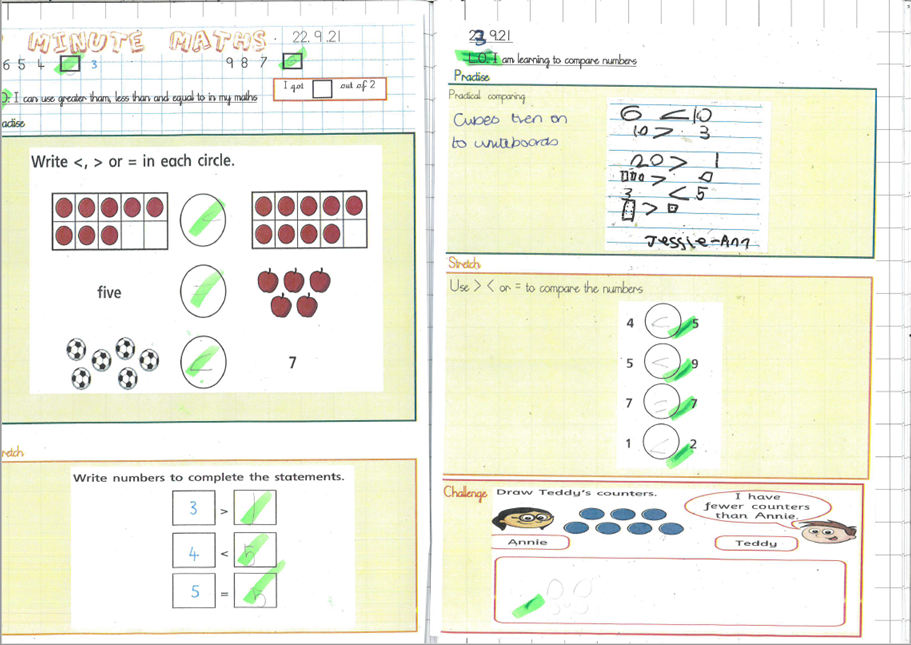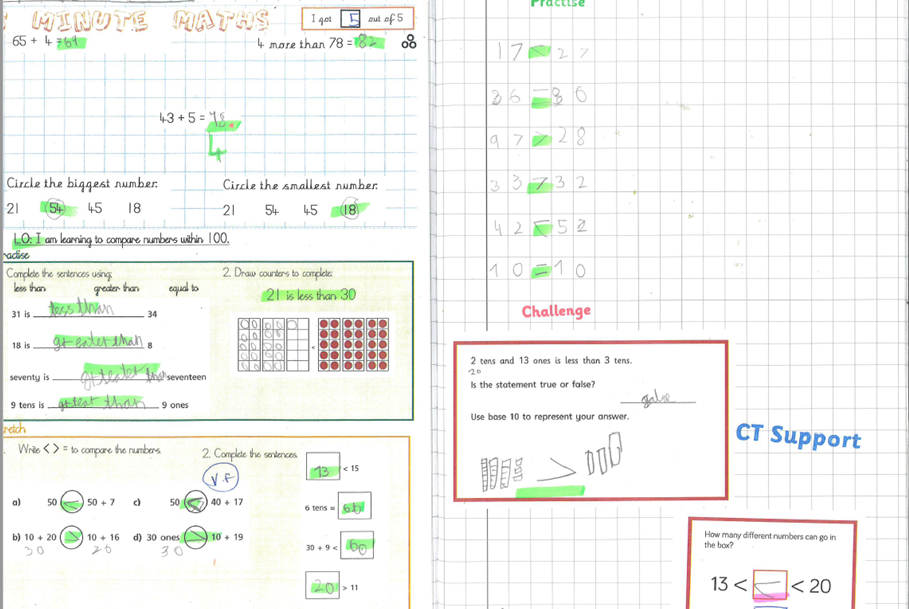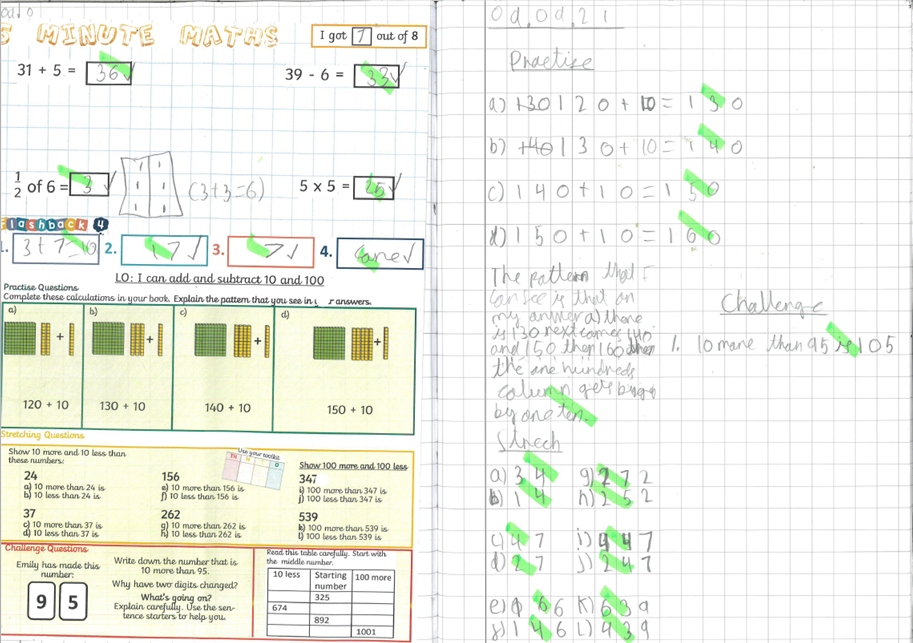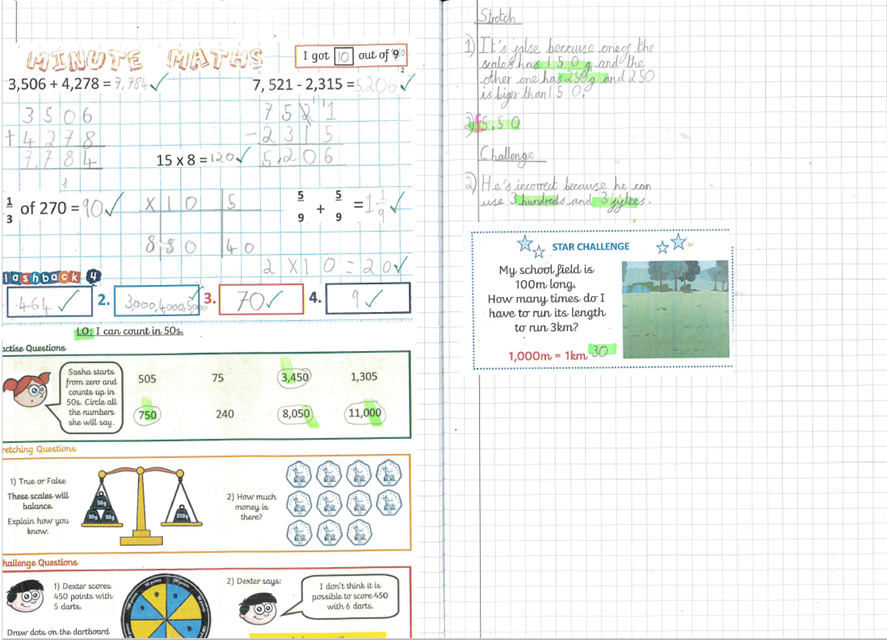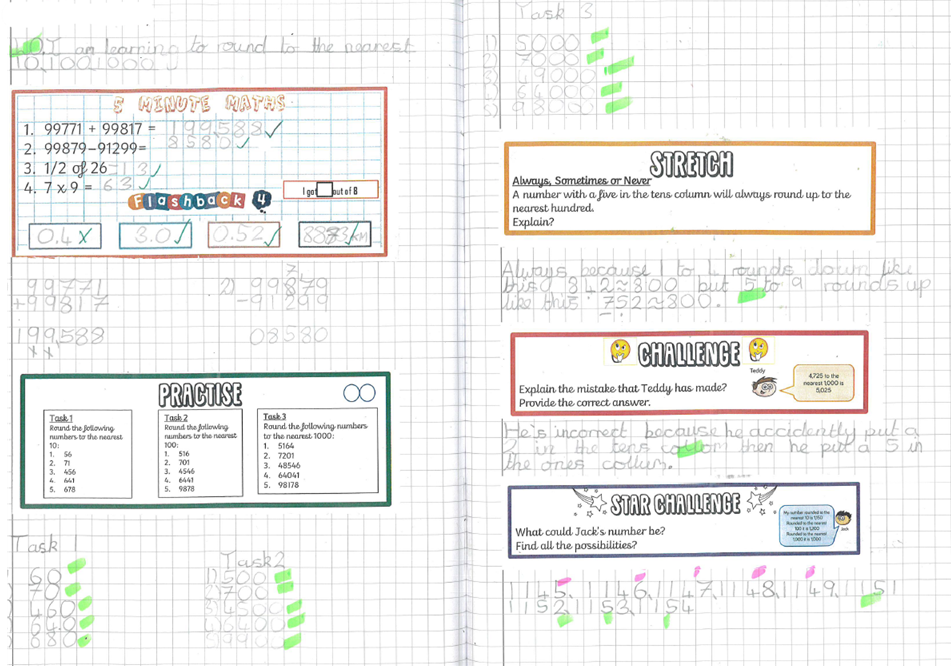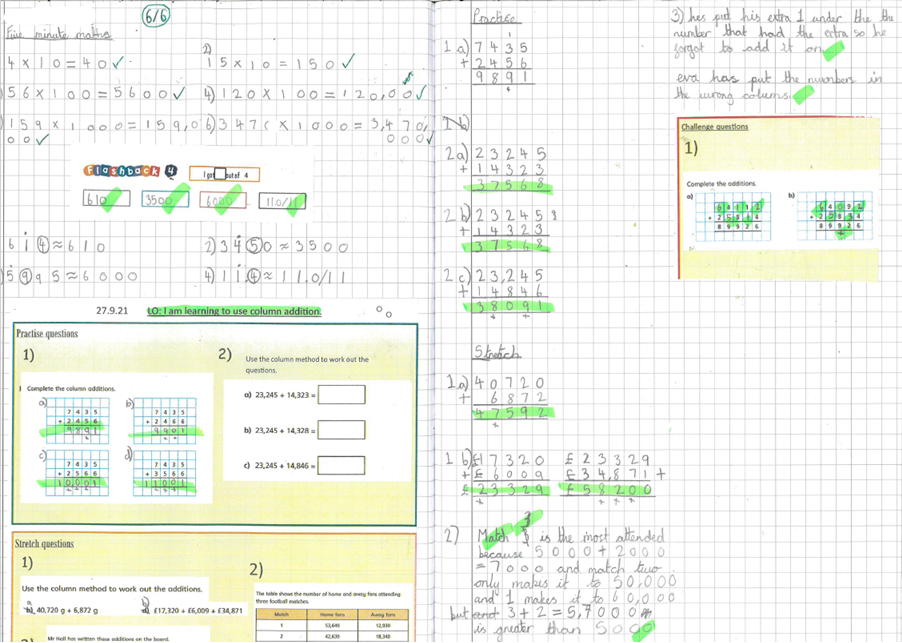MATHS
ENCOURAGING EFFECTIVE LEARNING WITH NUMBERS
Our Vision
EYFS
Children in the Early Years Foundation Stage follow the Early years foundation stage (EYFS) statutory framework. Pupils are encouraged to choose and participate in a range of mathematical activities each day. A range of planning materials are used to inform the learning experiences each day and are planned sequentially across a series of days and weeks. This includes: cooking; weighing and measuring; painting; shapes and patterns; ordering and comparing; and using mathematical language. Children learn to be numerate through a range of carefully selected activities. Work and activities are recorded in learning journals, as well as in our EYFS online learning journal – Tapestry.
KEY STAGE 1
During the first two years of their primary education, children at Kingsthorne are taught the building blocks of mathematics and a variety of different mathematical concepts. They will learn a deep understanding of concepts and be able to demonstrate this through practical demonstrations, verbal and written explanations and will begin to reason about these concepts. Pupils will apply their knowledge to a range of problem-solving activities to deepen their understanding and strengthen links between different strands of mathematics. Children will learn multiplication facts for the 2, 5 and 10 times tables, number facts such as number bonds to 10, 20 and 100, as well as the beginnings of written methods of calculation. They will use positional and directional language, geometry, measures and fractions.
KEY STAGE 2
As the children move to Key Stage two, they will be taught written methods of calculation to the full extent of the primary curriculum, and consolidate their knowledge of multiplication and related division facts for all times tables up to 12 x 12. In Year 4 children will take the multiplication check and focus will be on recalling facts quickly and accurately. Children will develop further understanding within mathematical strands such as fractions, decimal and percentages, measures, geometry, statistics and algebra. Children will gradually acquire this knowledge through a rigorous and sequentially planned series of topics and lessons. During every lesson, children will spend time practising multiplication and division facts, counting and arithmetic, which is taught through ‘5 minute maths’ and within the first 20 minutes of maths lessons to ensure regular and rigorous practise of the fundamentals of mathematics. Children will also be exposed to rich tasks designed to challenge understanding, use their knowledge to conject and explain using developed reasoning skills in order to be successful mathematicians into their secondary education.
SUPPORT AT HOME
Research shows that the most successful pupils regularly practise the key skills in order to revisit, revise and consolidate their learning.
In order to support children at home, you can download or look at the following resources to support your child.







